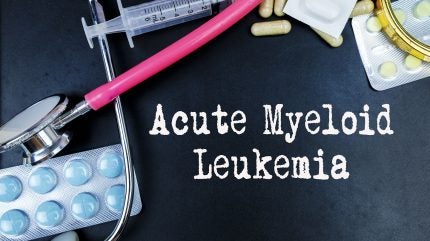
Sellas Life Sciences has dosed the first paediatric subject with acute myeloid leukaemia (AML) in its multi-centre Phase II trial of the highly selective cyclin-dependent kinase 9 (CDK9) inhibitor SLS009 (tambiciclib) for relapsed/refractory (r/r) AML.
The single-arm, open-label trial will assess the tolerability, efficacy, and safety of the therapy when used in conjunction with venetoclax and azacitidine at 45mg and 60mg dose levels.
The 60mg dose cohort involves the treatment being administered to the subjects either once a week at this dose or twice a week at a 30mg dose.
The trial has been expanded to include additional cohorts.
One cohort will consist of subjects with additional sex combs-like 1 (ASXL1)-mutated AML, and another will include those with myelodysplasia-related molecular abnormalities, excluding ASXL1 mutations.
The trial has a target response rate of 20% at the optimal dose level and a target median survival of a minimum of three months.

US Tariffs are shifting - will you react or anticipate?
Don’t let policy changes catch you off guard. Stay proactive with real-time data and expert analysis.
By GlobalDataIn addition, it aims to detect biomarkers for the target subject to enrich subsequent studies.
In July last year, the company received the Food and Drug Administration’s (FDA) rare paediatric disease designation (RPDD) for paediatric AML treatment.
This designation could lead to significant advantages for Sellas, as an approved new drug application (NDA) for SLS009 would make the company eligible for a priority review voucher (PRV).
Sellas Life Sciences chief development officer Dragan Cicic said: “This milestone reflects our commitment to addressing critical unmet needs in haematologic disorders as we develop treatments for the most difficult to treat patients, particularly paediatric patients, with very few available options, including multi-hit TP53 mutation, failure of azacitidine and venetoclax, failure of transplant, and almost all available high-intensity chemotherapies.
“With the RPDD already in place, we are hopeful that our work will bring meaningful progress and potential regulatory advantages as we continue to advance this important programme.”
Sellas reported data from the Phase IIa trial of SLS009 in treating relapsed/refractory diffuse large B-cell lymphoma (r/r DLBCL) in February.



